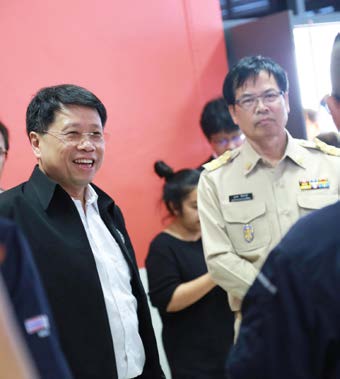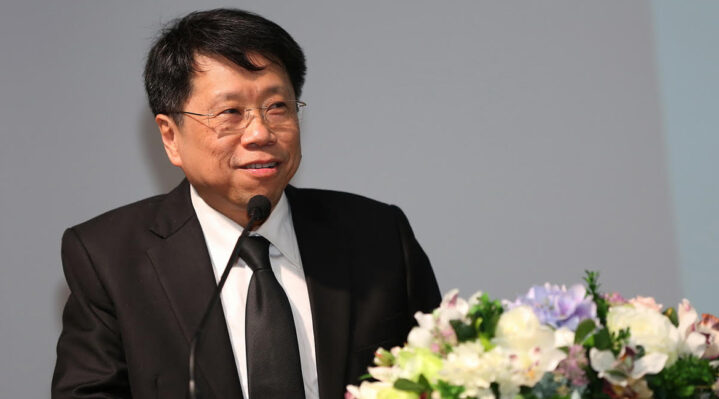
Thai Ministry of Education Pushes for Evidence Based Policy
The Thai Minister of Education, Dr Teerakiat Jareonsettasin, is certainly no stranger to making headlines. Whether it’s exposing the dark reality of Thai English teachers’ language proficiency, speaking out about rampant internal MOE corruption or smashing decades-old practices that are no longer in the best interest of Thai students, Dr T has no plan to back down on his forward push for modernising the Thai education system.
At his core, he loves his country and he believes that Thailand can and should do better. June’s Chambers of Commerce luncheon brought together education and business leaders to listen as the Minister outlined the strengths and weaknesses of the Thai education system and what critically important steps need to be taken to ensure that Thailand doesn’t continue to slip behind its regional competitors.
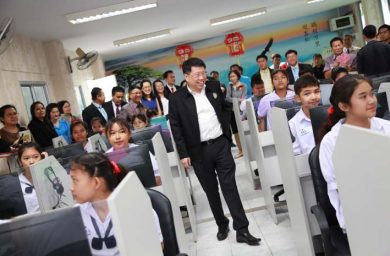
“At his core, he loves his country and he believes that Thailand can and should do better.”
With the average tenure of a Thai Minister of Education being only 10 months, it’s no wonder very little progress has been made in Thai education. This criticism isn’t merely conjecture or opinion. According to Thailand’s PISA scores (Programme for International Student Assessment), not only have Thailand’s scores not improved, they have actually fallen to their lowest point since the test was first administered fifteen years ago. This statistic is at the crux of Dr T’s approach to reform: evidence-based policy (he is a scientist after all).
The Minister continued on to show us a pairing of fascinating data combined with anecdotal evidence to vividly paint a picture of the current state of education in Thailand. He clearly isn’t shy about ruffling feathers or “stealing some faces” with this somewhat uncomfortable data. “These are the facts,” he said as he presented Thailand’s less than astounding performance compared to regional competitors as well as education powerhouse countries in Scandinavia.
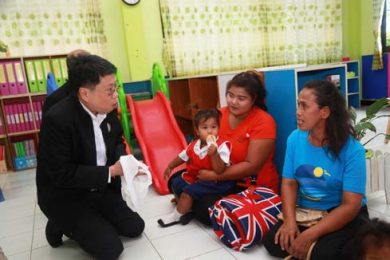
To put this data in context, at the top of the pool are countries like Singapore and Finland averaging PISA scores of around 550. The Western average is around 500. Thailand currently sits at about 400-450. The poorest performing Thai schools (vocational schools) score just above 350. However, on the plus side, Thailand also has a handful of schools scoring over 600. The difference between student scoring 350 verses 550 is about 7 years worth of education. Therefore, a good student in a Thai vocational school, despite attending for the same number of years, will actually be about 7 years behind an average student in the West.
Upon graduation, an average 15 year old Thai will be about 3 years worth of education behind an average 15 year old American. “So, what’s going on?” Dr T hypothetically questioned. Inequality. “Clearly Thailand CAN provide a world class education, so why aren’t we looking right here at home at what these 500/600+ point schools are doing differently?” He then went on to compare Thailand to Vietnam where interestingly, the data shows that poor kids are performing almost as well as rich kids on these tests.
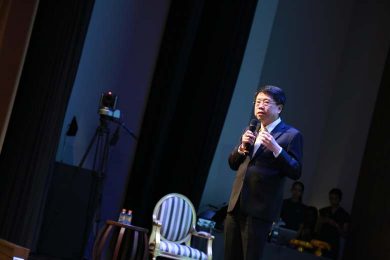
Equality in education is clearly not impossible if Thailand recognises and attacks these inconvenient truths rather than hiding them behind the familiar Thai smile. Now that the evidence is clear, the question is, what’s next? The minister believes there are too many directives and not enough direction. He looked to the Anglo-Irish statesman Edmund Burke for his guiding principles for reform:
- Build on existing arrangements and previous forms
- Early
- Proportionate
- Measured
- Consensual
- Calm
- Practical
The ministry has already started to apply some of these strategies. For example, in 2017 for the first time, 40,000 English teachers’ level of proficiency was measured. It was found that only 350 were beyond an advanced beginner. Once confronted with this evidence, the Ministry, in partnership with the British Council, began offering an English bootcamp programme that has been welcomed with open arms by Thai English teachers. Rather than shaming and blaming the teachers, his policy seeks to support teachers to upgrade their skill set.
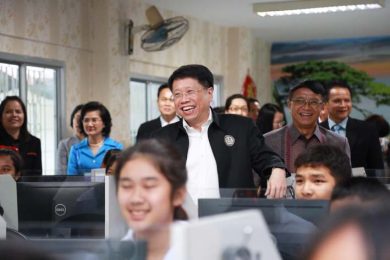
Keeping with the first guiding principle, Dr T also addressed the issue of why Thailand can’t just adopt some of the practices of the Finnish education system. He said, quite frankly, “If we did that, it would break the entire system. It takes 5 years to begin to see the results of reforms, we shouldn’t be looking at what Finland is doing now, we should be looking at what they did 20 years ago.” This retrospective approach is exactly what the ministry needs in order to combat years of reactive policies that, according to PISA, have clearly not produced positive results.
Many would look at the challenges that the Ministry of Education faces and run. However, Dr Jareonsettasin is facing them head on with an attitude rooted in duty, passion and evidence and still manages to keep his affable sense of humour while he’s at it. Stay tuned. If all goes according to plan, you’ll be hearing a lot more from this minister on his quest to support Thailand to reach the potential we all know it has.
